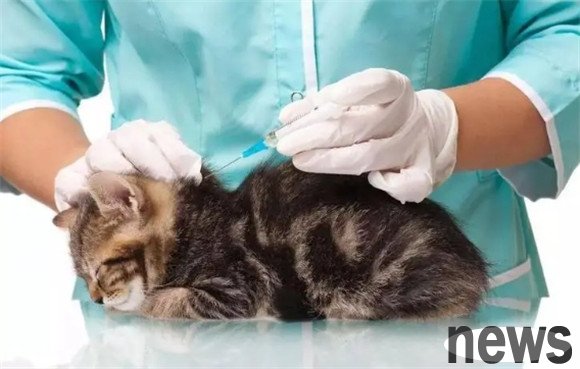【Pet Deworming Guide】——Popular Science of Dogs and Cats’ Deworming Knowledge
In vivo deworming time
Puppies usually undergo internal deworming for the first time around the full month.
6 months ago puppy. Deworming once every month.
6 months later, puppies and adult dogs are dewormed every 3 months.
If you eat raw flesh and blood. Deworming must be done every month.
External deworming time
Summer: Once in 1 month Autumn and winter: 2 months
External drive needs to be separated from the bath one week. Because the external drive spreads to all parts of the body through the oil from the skin. The skin that has just taken a shower has no oil secretion, which will affect the deworming effect.

There are insects in the body. If your dog is particularly able to eat, but does not increase weight, it is getting thinner, because the parasites parasites in the intestines absorb most of the nutrients eaten by the dog. This causes the dog to absorb nutrients themselves, so that they will not gain weight by eating dryly, lose appetite, lose weight, and delay in development.
2. Frequently licking the butt and rubbing the butt (this condition may also be a problem with the anal gland): vomiting, diarrhea, constipation or diarrhea, abdominal pain, and enlarged abdominal circumference.
3. Parasites are parasitic in the intestines, and when there are too many, they will stimulate the stomach and intestines. It causes gastrointestinal discomfort, which can trigger vomiting reactions. In particular, the insects will be spit out directly.
There are insects outside the body
1. Dogs always scratch, rub, lick or bite a part of their body with their paws, or rub on the ground: This may be scabies, sluts or lice, ear mites!
2. Their personality changes suddenly and they are restless. Emaciation: Loss of appetite and lack of energy. There are irregular hair loss.
3. There are large rashes or erythema in a certain part of the skin. Or the knot after being scratched.
4. When checking the ears, it was found that there was brown dirt and the ears were smelly.
5. Sometimes the owner feels severe pain and itchy, it may also be caused by parasites on the pet.
6. Cruses and pustules appeared on the body, and even hair loss. These are most likely infected with scabies mites! Tips for deworming dogs
DISEASE PREVENTION
What should you pay attention to before and after deworming?
1. Deworming and vaccines should be separated by one week
2. You can only deworming in a healthy state. If a hairy child catches a cold or is uncomfortable, please do not deworm it for the time being.
3. It is not recommended to take a bath within one week, as oil on the skin helps the dispersion of the antiworming medicine.
4. If you have symptoms such as vomiting and diarrhea after deworming, you should go to the hospital in time. It is generally not recommended to deworm your pets during pregnancy or breastfeeding. If there are parasites, you can follow the doctor's advice to take medicine.
6. After feeding the internal deworming medicine, pay attention to the pet's reaction and you can fast for a period of time.
Reactions after deworming of dogs:
Some dogs have no physical discomfort after taking the deworming medicine. For this kind of dog who has no discomfort, you can avoid giving the dog other food two hours after it finishes taking the medicine, so that the medicine can be better effective.
Most dogs will have a "wildered" reaction, which is relatively normal, and may also experience some mild vomiting and diarrhea. At this time, parents should not disturb the dog's rest, let it lie quietly and lie down. Prepare clean water for it, and usually the dog will recover after half a day.
Some dogs with weak stomach or older stomach will get tired and vomit, or even retching after taking the medicine. As long as the medicine is effective, the dog will gradually improve. If the situation does not improve after 24 hours, you will have to be sent to the hospital for treatment.
Popular science on cat deworming knowledge

01
Does cats need to deworm?
Cats are divided into internal and external driving, and the inside and outside are divided into internal and external driving. In vivo parasites and extracorporeal parasites will pose a threat to the health of cats. In serious cases, it will cause cats to lose weight, vomit, diarrhea, and even life-threatening, so it is necessary to deworm!
02
What preparations should cats do before deworming?
1. External deworming: It is recommended to bathe the cat before deworming. After taking a shower, wipe the cat dry, and then drop the deworming medicine on the cat's shoulder fat bones, the back of the ears and other parts to prevent the cat from licking. External deworming medicine requires the cat's skin to absorb the medicinal power.
1. In vivo deworming: All edible deworming drugs are toxic. The cat's weight should be measured in advance and fed strictly in accordance with the instructions. The time for feeding deworming drugs should be about 3 hours after meals. The cat needs to fast for about 5 hours after taking deworming drugs.
03
Deworming at different ages
Usually:
Pupils: Kittens are 6, 8, and 2 weeks old, and take deworming once each time.
Adult cats: Adult cats over 6 months of age deworming once every 3-6 months.
Pregnant and breastfeeding cats: Deworm them about 10 days before delivery + about 2-4 weeks after the end of breastfeeding.
04
Things to note after cat deworming
1. Intrabody deworming: Cats have different physical constitutions. Pay attention to observing the mental and physiological state of the cat after deworming, and also pay attention to whether parasites are excreted from the cat's feces.
2. External deworming: It is recommended to wear an Elizabethan ring on cats to avoid cats licking affecting the effect of the drug and adverse reactions caused by cats after accidentally ingesting.
Common parasites in cats
01
Ascaris
Ascaris
long and are parasitic in cats. Most of them are infected by contact with stools containing ascaris eggs. The milk of female cats with ascaris in their bodies will transmit ascaris to kittens.
Symptoms: After infection with roundworms, the cat will vomit, lose appetite or have diarrhea.
02
tapeworm
tapeworms are about 50 cm long and are parasitized in the cat's digestive tract. Contact with contaminated stools and mistakenly ingesting infected fleas by cats may cause parasitism by tapeworms.
Symptoms: There are no obvious symptoms in adult cats, and the kittens have diarrhea symptoms.
03
Pearsoft
Pearsoft are about 4-5 microns long and are parasitized in the intestines of cats. Cats may become infected when exposed to infected stools, contaminated water and food.
Symptoms: Cats lose appetite, poor spirits, and diarrhea.
04
coccidium
parasitic in cat intestines and epithelial cells. Eat food or water contaminated by cocciferous cocciferous infection directly, and eat hosts with cocciferous cocciferous infection indirectly.
Symptoms: Coccidius can survive in an external environment for several months, which can cause diarrhea, dehydration, and dysplasia in cats. Severely, it can cause threats to cats' lives.
05
Toxoplasma gondii
parasitizes in cat cells and flows with cat blood.
Cats mainly obtain toxoplasmosis infection through infected cat feces and prey on mice, birds or eating raw pigs, beef and mutton.
Symptoms: Some cats have no obvious symptoms after being infected, and a few cats will experience symptoms of diarrhea, lethargy, loss of appetite and even difficulty breathing.
Common parasites in cats
Take care of yourself!
01
ticks
ticks
are sensitive to animal sweat odor and carbon dioxide. Once the cat passes by, it will climb up.
Symptoms: Ticks can suck cat blood, which may cause cats to have anemia.
02
Ear mites
are infected, and often the ears of dry cats are not cleaned for a long time, and secretions, dust, etc. accumulate to produce bacteria, which will form ear mites.
Symptoms: Cats may have redness, swelling, hair loss, and skin ulcers in severe cases.
03
Fleas and lice
The cats are in a dry and messy environment and have not been cleaned for a long time, and there are fleas around them, fleas will grow on their bodies.
Symptoms: Itchy symptoms appear on the cat, which in severe cases will cause the cat to lose hair and develop skin diseases.




